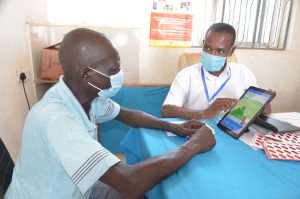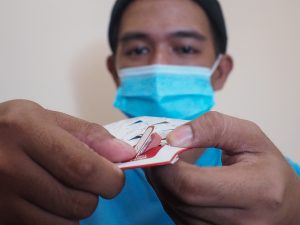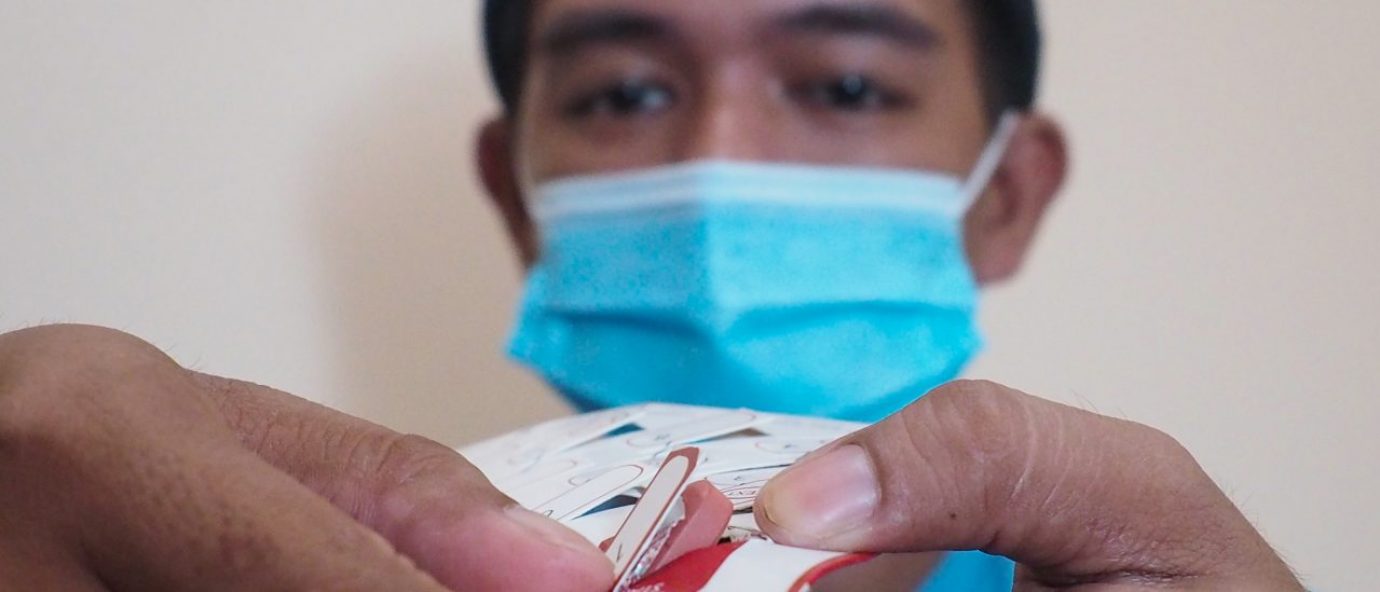Since 2018, KNCV has rolled-out Digital Adherence Technology (DAT) demonstration projects in the Philippines and Tanzania. These TB REACH projects were funded by the Stop TB Partnership. The goal of these demonstration projects was to assess the feasibility, acceptability by patients and health care providers, and the accuracy of digital adherence technologies.
In addition, the project assessed the overall impact of DATs on treatment outcomes and general adherence behavior. As part of the project, KNCV will determine the necessary adaptations needed to make DATs suitable for a variety of contexts, including how to incorporate patient-centered mechanisms, and steps to scale-up and sustain these innovative approaches.

TB REACH Tanzania
The TB REACH 99DOTS technology was implemented in the Geita region of Tanzania as a demonstration project with the aim to (i) implement 99DOTS adherence technology through NTLP service delivery and current work processes, systems and supply chains, (ii) build capacity within the NTLP regarding adherence technologies, (iii) assess practicalities, scalability, and impact on treatment outcomes of monitored self-administration and dose history informed differentiated care. Since the start of the project has provided critical learnings that have informed global adaptations to the Digital Adherence Technology (DAT) platform, reduced patients lost to follow up by 5% (compared with control facilities during the period of implementation), secured NTP and partner buy-in and have set the stage for the introduction of other types of digital adherence technologies – such as smart pill boxes – in Tanzania.
Read more in the project summary TB REACH Tanzania and the patient story of Riziki.

TB REACH The Philippines
– The TB REACH project on treatment adherence aimed to:
Implement 99DOTS adherence technology through National TB Program (NTP) accredited service delivery and supply chains, and
– Assess practicalities, scalability and impact on treatment outcomes of monitored self-administration and dose history informed differentiated care.In 2019 we had the following successes:
– The treatment success rate was 79% (213/269) with 82 patients still undergoing treatment
– We secured buy-in of NTP (national, regional, local) and other stakeholders (e.g. WHO, private and public sectors)
– DAT is now included in the revised NTP Manual of Procedures
– We identified and proposed modifications needed in 99DOTS application and dashboard for enhancements in the KNCV-led ASCENT project
– Participatory localization/customization of DAT and establishment of differentiation pathway of care – by regional and local stakeholders
Read more in the project summary: TB REACH Philippines and the patient story of Angelito from the Philippines.
TB REACH Nigeria
In Nigeria KNCV rolled-out an active casefinding TB REACH project, “Scaling up Innovative Delivery of TB Care to Nomadic populations in northeastern Nigeria”. The project was coordinated on the ground by two community-based organizations (CBOs), active in three states in northeastern Nigeria (Adamawa, Gombe and Taraba). KNCV provided technical and fiduciary guidance to the CBOs (Janna Health Foundation and SUFABEL Community Development Initiative).
The purpose of this project was to expand TB care in an innovative and collaborative manner through involvement of nomadic leadership to ensure that patients and communities have ownership over the design, implementation and sustainability of the project, while retaining an evidence-based approach. The objective was also to stimulate policy change on the allocation of scarce resources to improve TB case detection.
The project was launched at the end of 2018. Community leaders, both male and female, were engaged as TB advocates. A cadre of volunteers were recruited, and many were provided with motorcycles to reach rural areas for screening and to transport sputum specimens to TB laboratories. In 2019, nearly a half million nomads (men, women and children) were actively engaged for TB screening. In 2019, nearly 3,000 confirmed TB cases were diagnosed and put on appropriate treatment as a result of this project.
In addition, as nomads are at greater risk for zoonotic TB due to drinking unpasteurized milk and exposure to animals with bovine TB, an operational research project was initiated by KNCV in collaboration with the CBOs and the National TB & Leprosy Program, Nigeria.
Read more in the project summary: TB REACH Nigeria.

